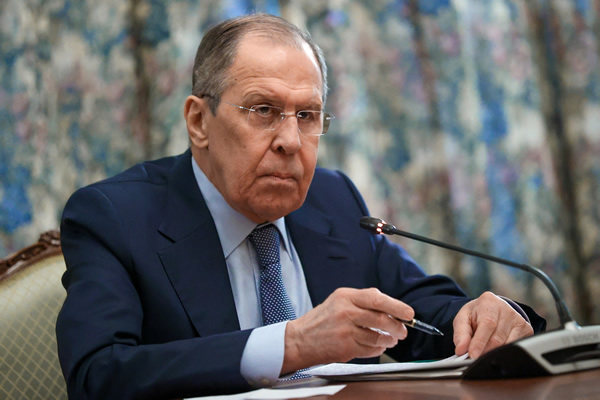
Russia’s foreign minister is heading to Ethiopia Tuesday, his last stop on a four-nation tour of Africa aimed at countering Western criticism of Russia’s invasion of Ukraine. Western nations blame the invasion for worsening food shortages in record drought-stricken East Africa, including Ethiopia. But Ethiopia has also been under Western pressure over its war with Tigray rebels and has a historic friendship with Russia.
Sergey Lavrov will round off his Africa tour by meeting with Ethiopian officials in Addis Ababa as he fends off accusations that his country is exporting hunger through its war in Ukraine.
He will also try to strengthen ties with Ethiopia’s federal government, whose relations with the West have soured amid accusations of human rights abuses in the Tigray conflict.
Russia’s presence in Ethiopia is scant compared to other countries. It does not have a large aid footprint like the U.S. Nor does it invest heavily in infrastructure as the Chinese do.
But the two countries have a strong diplomatic partnership. Since the Tigray war started in November 2020, Russia has shielded Ethiopia at the United Nations Security Council by insisting meetings be held behind closed doors and using its veto to block statements condemning alleged abuses by Ethiopian forces.
It is not unusual to hear people in Addis Ababa express a preference for Russia over Western countries, which Prime Minister Abiy Ahmed’s government has suggested are behind a conspiracy supporting the Tigray People’s Liberation Front rebel group, or TPLF.
Moges Zewdu Teshome, an independent researcher, said the Russia-Ethiopia relationship has deep historical roots.
“The Ethiopian government has always been in a good relationship even during those turbulent periods of the Cold War, of course, siding with the Soviet Union, as you may recall,” he said. “And then if we see it in the context of the current quagmire which Ethiopia is in when it comes to its international relations and foreign policy posture, Russia has been backing the Ethiopian claims and or at least positions in the U.N. Security Council.”
Ethiopian officials will likely seek assurances from Lavrov that Black Sea wheat exports will resume. Ethiopia has plans to boost its wheat production in an attempt to become self-sufficient. But for the time being, it imports over 40% of its grain from Ukraine and Russia, and some 30 million Ethiopians currently rely on food aid sourced from global grain markets.
Last year, as the Tigray war continued, Russia signed a security partnership with Ethiopia. The deal raised eyebrows among Western diplomats whose countries suspended aid.
However, Awet Weldemichael, a professor at Queen’s University in Ontario, said Russia cannot displace the Western presence in Ethiopia, especially as the prime minister tries to rehabilitate ties with the U.S. now that the Tigray conflict is cooling down.
“I don’t think that the West’s relationship with the Ethiopian prime minister is as bad as it was six months ago or a year ago,” he said. “We increasingly see the West has been actively normalizing the prime minister and his policies. In light of that, in light of the mending of fences, so to speak, between Addis Ababa and Western capitals. I doubt that Foreign Minister Lavrov will have much of a chance.”
Ethiopia abstained from voting on the U.N. resolution condemning Russia’s invasion of Ukraine in March.
Source: voanews.com























